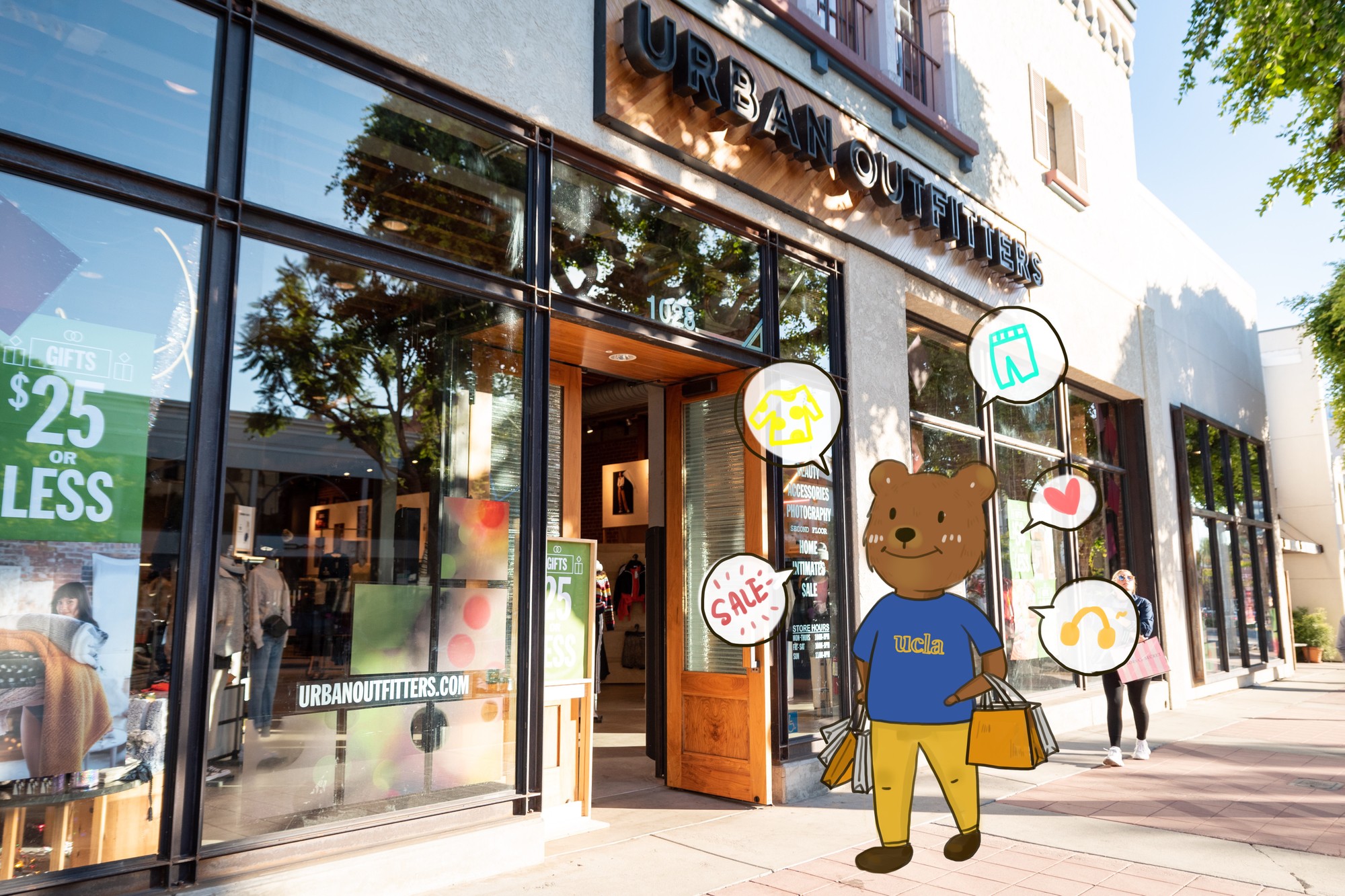The Quad: Retail therapy relieves stress, but may be taxing in the long term

(Muling Shi/Daily Bruin)
By Stephanie Foo
Dec. 10, 2018 12:29 p.m.
It’s officially finals week, which means more stress and unfortunately less money in my wallet as I attempt to shop all my worries away.
Whenever the stress of studying for class, the disappointment of receiving a bad grade, or anxiety of balancing extracurriculars becomes unbearable, I never fail to crack open my laptop, browse the Sephora website, and walk away with at least $50 worth of makeup. Indulging in retail therapy is a common practice used in response to overwhelming situations.
According to TIME magazine, retail therapy is defined as shopping and spending money to improve one’s mood. While many of us recognize how good it makes us feel, why do we do it – and more importantly, does it work to relieve stress?
Whether you are a struggling college student or busy adult, retail therapy is a common coping mechanism to overcome our day-to-day anxiety and brighten our mood. Ebates.com, an icon for online cashback shopping, revealed in a survey that more than half of Americans indulge in retail therapy, which does not come as a surprise considering our culture of consumerism and the daily grind of life. Additionally, Americans are stress-prone – according to HuffPost, 77 percent of Americans admit to regularly feeling stressed, leading some to stress shop.
“I don’t do it often, but when I do, I binge,” said Lauren Mignogna, a first-year biology student. “It’s a stress reliever.”
The New York Post cites, in addition to stress, other top reasons people indulge in retail therapy: boredom, a busy schedule, relief from anxiety and relationship problems.
Nevertheless, an overarching psychological thread behind our shopping compulsion remains: When overwhelmed with the daily grind of life, we often turn to temporary distractions to mend our mind and soul. According to a report in the Journal of Consumer Psychology, researchers found that retail therapy can lend the shopper a stronger sense of control over their own lives, alleviating sadness.
When one experiences sadness and falls into a bad mood, it is commonplace to feel as if external forces are the source of our unhappiness and nothing is going the way we intended. Our sense of helplessness causes us to crave control and autonomy and find situations in which we can regain control. Interestingly, a report in Psychology & Marketing found that the benefits of making small, unplanned purchases when one’s mood is down are generally positive in managing one’s mood.
“Shopping gets us sensing and that gets us out of our own thoughts,” clinical psychologist Scott Bea said in an interview with Cleveland Clinic, a nonprofit academic center.
UCLA students are definitely no strangers to stressful circumstances and retail therapy.
“It just contracts the hectic nature of my daily life, and allows me to indulge in my temptations and have control,” said Adele Nguyen, a second-year biochemistry student.
Nguyen said the feeling of scrolling through clothing and other items and deciding what to buy was a therapeutic release and escape from her classes and responsibilities. Given all the opportunities, obligations and work a college student must endure, it is natural to find joy in something as simple as shopping.
Her perception of shopping is not uncommon. In fact, the view that shopping serves as a positive outlet dates all the way back to the postwar era after World War II. As industrial America emerged and the economy grew, Americans’ quality of life increased and businesses expanded, which allowed many to spend more and find pleasure in it. According to a study done by Swap.com, Americans revealed that more than 22 percent of their shopping was to fulfill pleasure, not need.
While retail therapy initially cures us of our emotional distress, there can be lingering implications of one too many purchases. For instance, buyer’s remorse is when one makes certain purchases and later wishes they had made a different decision, which is one of the first signs that the act of shopping has become detrimental to your wallet and emotional health.
Although a little retail therapy from time to time isn’t too consequential, continuously relying on shopping to reign in one’s emotions can lead to compulsive shopping, something 7 percent of American consumers participate in. Research conducted at Indiana University drew a direct correlation between the urge to shop and the desire for a rush or high exemplified by drug or alcohol users.
Retail therapy can definitely be a fun and relaxing time to blow off steam, but when too much time is spent on websites and in stores, your wallet won’t be the only thing that is drained. In moderation, however, retail therapy may just cure you of some of your finals week worries.

